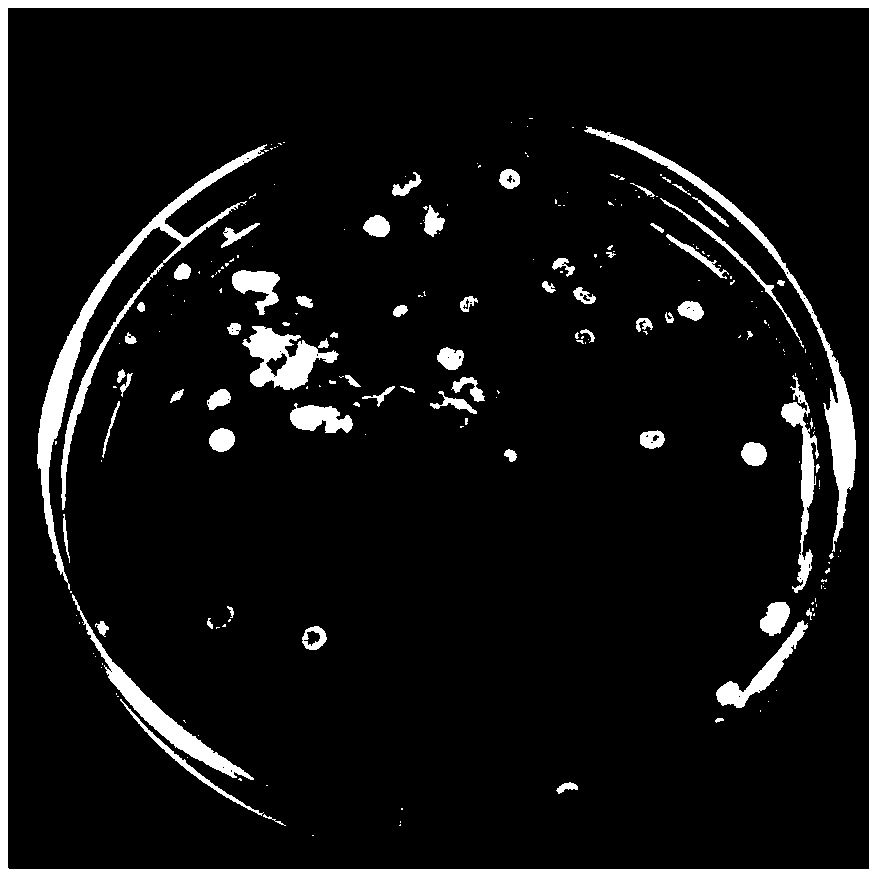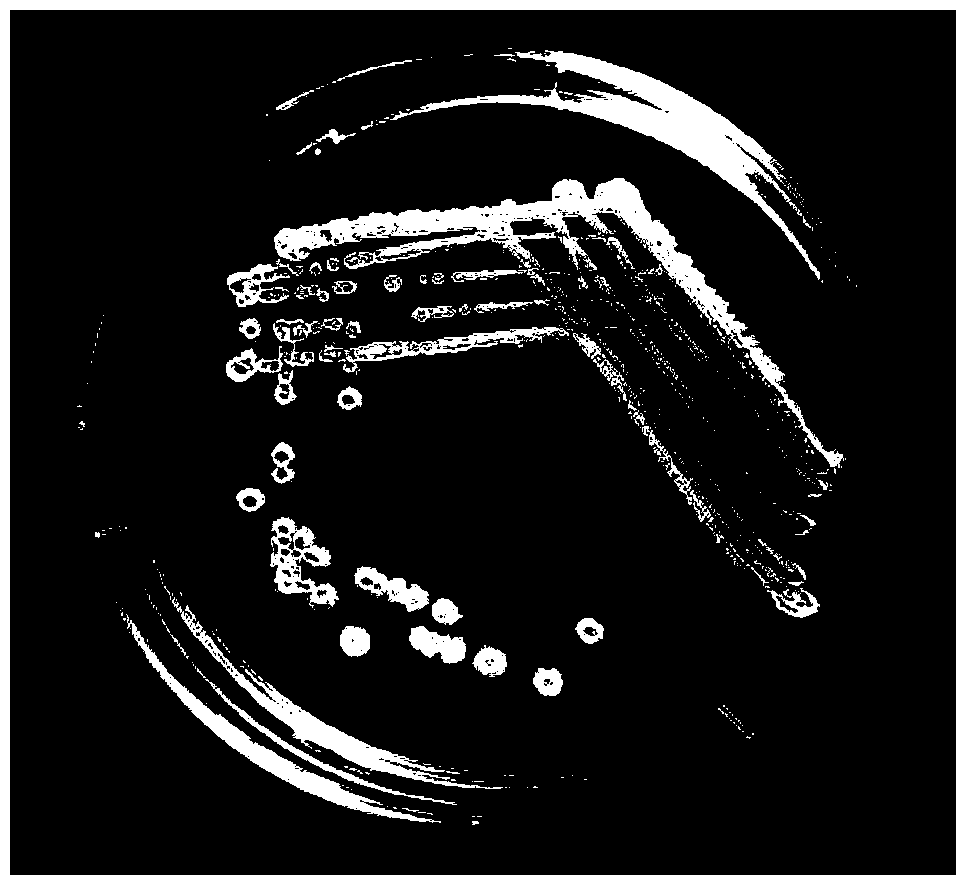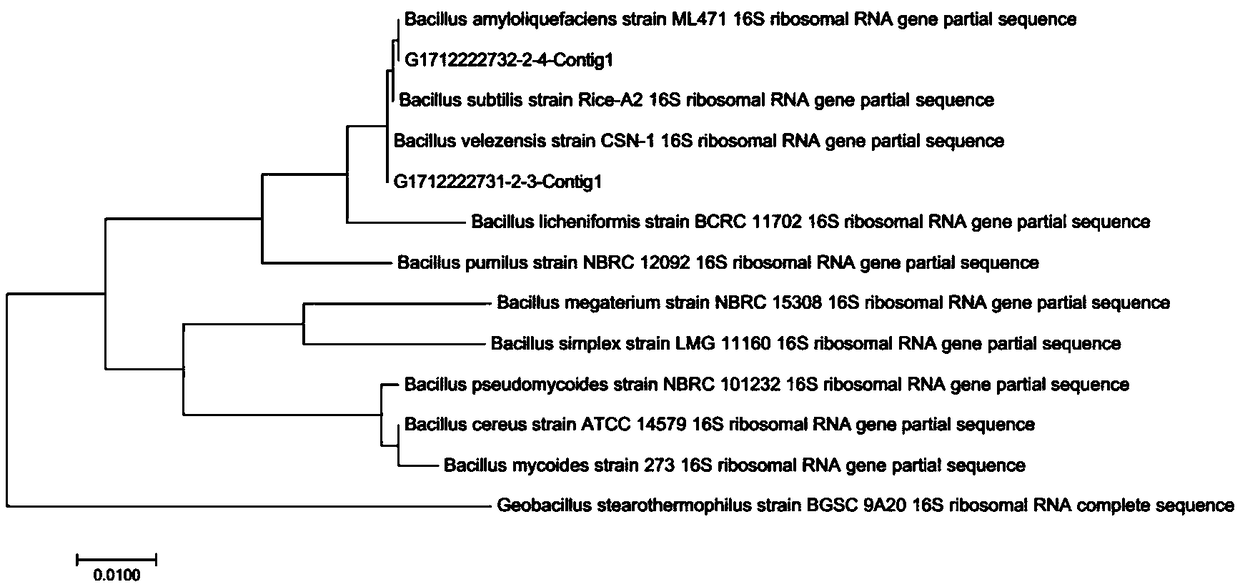Bacillus amyloliquefaciens, microbial inoculum as well as application of bacillus amyloliquefaciens in treating kitchen wastes
A technology for decomposing starch spores and kitchen waste, which is applied in the field of microorganisms, can solve problems such as retention, and achieve the effects of odor release, high weight loss rate, and high activity
- Summary
- Abstract
- Description
- Claims
- Application Information
AI Technical Summary
Problems solved by technology
Method used
Image
Examples
preparation example Construction
[0033] The third object of the present invention is to provide a preparation method of Bacillus amyloliquefaciens liquid bacterial agent, comprising
[0034] Fermentation step: Streak the frozen-preserved Bacillus amyloliquefaciens A18 strain on the plate with plate activation medium, and cultivate overnight at 35-40°C;
[0035] Preparation steps of fermented liquid seeds: pick well-growth plate colonies in the seed culture medium, cultivate overnight at 35-40°C, 180r / min, to obtain liquid seeds;
[0036] The steps of preparing the liquid bacterial agent: the inoculum amount of the above-mentioned liquid seed fermentation medium is 5-10%, placed at 30-37° C., 150-220 r / min, and fermented for 12-24 hours to obtain the liquid bacterial agent of Bacillus amyloliquefaciens.
[0037] As a further solution, the plate activation medium of the present invention comprises beef extract 3g / L, peptone 10g / L, NaCl 15g / L, and agar 20g / L; the pH of the plate activation medium is 7.2-7.4.
...
Embodiment 1
[0047] Embodiment 1: Isolation and screening of Bacillus amyloliquefaciens
[0048] The separation process of Bacillus amyloliquefaciens of the present invention: the test samples are collected from the buckets of the kitchen garbage truck in the canteen of Nanjing University. Scrape the remaining kitchen waste from the bucket, put it in a plastic sealed bag, and store it at room temperature. Because the sample is difficult to dissolve in water and cannot be completely separated in water, the number of degrading bacteria in the obtained dilution is small, so the method of direct solid separation is adopted in this paper. Take a sample with a diameter of about 1 cm from the collected food waste, connect it to the center of the starch and protein medium, place it in an incubator at 37°C, and observe the growth of the colony. If there is mold in the medium, it will cause pollution when the bacteria are separated by streaking, so nystatin is added to the medium used to inhibit th...
Embodiment 2
[0053] Embodiment 2: the preparation of bacillus amyloliquefaciens liquid bacterial agent
[0054] The bacterial agent contains Bacillus amyloliquefaciens (Bacillus amyloliquefaciens) A18 at a concentration of 10 9 CFU / mL-10 10 CFU / mL; its preparation method, including
[0055] Fermentation step: Streak the frozen-preserved Bacillus amyloliquefaciens A18 strain on the plate with plate activation medium, and cultivate overnight at 35-40°C;
[0056] Preparation steps of fermented liquid seeds: pick well-growth plate colonies in the seed culture medium, cultivate overnight at 35-40°C, 180r / min, to obtain liquid seeds;
[0057] The steps of preparing the liquid bacterial agent: the inoculum amount of the above-mentioned liquid seed fermentation medium is 5-10%, placed at 30-37° C., 150-220 r / min, and fermented for 12-24 hours to obtain the liquid bacterial agent of Bacillus amyloliquefaciens.
PUM
 Login to View More
Login to View More Abstract
Description
Claims
Application Information
 Login to View More
Login to View More - R&D
- Intellectual Property
- Life Sciences
- Materials
- Tech Scout
- Unparalleled Data Quality
- Higher Quality Content
- 60% Fewer Hallucinations
Browse by: Latest US Patents, China's latest patents, Technical Efficacy Thesaurus, Application Domain, Technology Topic, Popular Technical Reports.
© 2025 PatSnap. All rights reserved.Legal|Privacy policy|Modern Slavery Act Transparency Statement|Sitemap|About US| Contact US: help@patsnap.com



